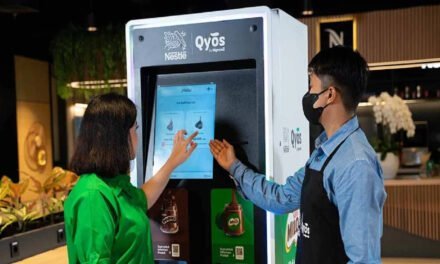Several startups in India have entered the online meat and seafood retail to cater to the needs of non-vegetarians who look to avoid the unorganised and dirty local meat retail shops. The convenience these online meat retail services provide is unparalleled – A report
The Rise of Meat Retail Start-Ups
Meat at Your Doorstep: Who would have thought, just a few years ago, that your favourite meat, seafood, or fish would be available at the click of a button? Following the footsteps of the online vegetable and fruit sellers, a number of start-ups dealing with meat and fish have begun their foray, delivering their products to the doorsteps of customers.
Growing Demand for Fresh and Hygienic Meat Retail
And, they are succeeding. First, thanks to the fact that the country is predominantly non-vegetarian. The Sample Registration System (SRS) survey of 2014 points out that 71 percent of Indians over the age of 15 are non-vegetarians, and the country consumes meat worth $30 billion each year. The size of the Indian meat market is expected to triple soon, while a few reports mention that 90 percent of the meat demand is satisfied by the unorganised local markets.
In addition, these start-ups have taken the pain out of the visit to the local meat and fish markets that are often dirty and smelly. Add to that the fact that the fish or meat on display might be more than a day old, having been put in cold storage, that the discerning buyer would not touch.
Organized Meat Retail Start-Ups Revolutionizing the Industry
The high demand for fresh and hygienic meat has led to the rise of organised seafood and meat retail startups, bringing convenience to consumers who previously relied on unorganised local markets. These startups have transformed India’s seafood and meat retail sectors by addressing hygiene concerns, ensuring proper storage conditions, and eliminating middlemen.
Licious: A Leader in Meat Retail
Started in 2015 by Vivek Gupta and Abhay Hanjura, Licious has become a leader in meat retail. It has built partnerships with 180 vendors and has 27 delivery centres with 600 employees that cater to around 3 lakh customers and deliver a minimum of 5,000 orders each day across five cities, according to the company. Licious raised $25 million from Bertelsmann and Vertex Ventures some time ago and reported a revenue of Rs 12.3 crore in FY2017. It has processing plants in Bengaluru and Gurgaon. The company recently launched its pre-marinated brand that is available on e-commerce platforms.
Zappfresh: Transforming the Meat Retail Experience
Based in Gurugram and founded in 2015 by ex-MobiKwik employees, Deepanshu Manchanda and Shruti Gocchwal, Zappfresh aim is to make meat-eating a pleasant experience. So, it gets its meat and fish from local farms, slaughters them in hygienic plants, and customises the pieces before delivering them to the customer’s door at the earliest.
Zappfresh delivers chicken, mutton, seafood, cold cuts, and ready-to-eat kebabs and sausages. Incidentally, it has developed blockchain technology to forecast demands and has a 92 percent repeat rate. Initially started with Rs 30 lakhs, it raised Rs 20 crore from SIDBI and Amit Burman, VC of Dabur India, and has both B2C and B2B models. Currently delivering to Delhi-NCR, the company plans to mark its presence in another metro city by next year.
TenderCuts: Revolutionizing Meat Retail with Hygiene and Freshness
Started from Chennai in January 2016 by Nishant Chandran, TenderCuts aims to provide non-vegetarians unlimited choice of meat, cuts, and flavours, in the comfort of their homes. The company follows strict processes to maintain the hygiene of the meat and even use RO water to wash it. TenderCuts meat is also said to be antibiotic and hormone-free. The company delivers fresh and hygienically processed meat within 90 minutes. Currently working on a B2C revenue model, TenderCuts procures its meat and fish from fishermen and farmers directly, encouraging micro-entrepreneurship. It claims to have 25,000+ customers. TenderCuts began with Rs 3 crore and later, received angel funding of Rs 4.6 crore from Suresh Krishn, MD of Isha Homes.
FreshtoHome: Revolutionizing Meat Retail with Chemical-Free Options
The Bengaluru-based FreshtoHome was launched once again in 2015 by Shan Kadavil, has revolutionized seafood and meat retail. The startup deals with fresh, chemical-free seafood and meat retail in Bengaluru, Delhi-NCR, Chennai, Trivandrum, Cochin, and Trisshur. The platform has a range of products including fish, poultry, mutton, steaks, and fillet.
FreshtoHome owns the supply chain end-to-end and goes directly to the source. It has created a WhatsApp-like interface through which it auctions orders to fishermen every day. Fishermen with the lowest bid get the order. Founder Shan says that seafood sees a 60 percent markup in the wet markets as a number of middlemen are involved. The company claims to deliver seven tonnes of products each day and has an active monthly user base of around 1.25 lakh.
Hibachi: Expanding the Reach of Meat Retail
Founded in Hyderabad by Shekar Varma and Rajesh Tammisetti in April this year, it delivers to 11 locations. Most of its revenue is generated from online retail. Hibachi also takes orders on call and over WhatsApp. The founders claim that they receive 40 orders each day and are currently focusing on online retail orders. Hibachi also plans to expand its delivery locations.
| 🔗 Modern abattoir practices and issues related to animal welfare
Technology and Logistics: Key Drivers in Meat Retail Success
Online seafood and meat retailers are aiming to take a bite of the estimated $35-billion non-vegetarian foods market and they have received support from young consumers who do not have the time to visit local markets yet want fresh and hygienically-packed portions of meat and fish at home. To top it all, these start-ups follow stringent rules of hygiene – a fact that is on the top priority of consumers – and avoid preservatives and chemicals for the storage of meat.
The start-ups are a brave lot having ventured into a territory that was almost totally controlled by unorganised players. Additionally, making a mark in the market meant changing the perception of the business and convincing buyers.
That is why it is important to note that these start-ups operating in the chilled meat segment have direct access to the supply chain – from the rearing of livestock, butchering, and processing, to last-mile delivery – in a bid to bring order to this largely unorganised sector. The meat is stored at a temperature of 0-4 degrees Celsius and delivered within 24-36 hours of procurement.
Technology is what these start-ups depend on. As Vivek Gupta, co-founder, Licious pointed out: “Technology lets us monitor the temperature at our processing units remotely, in order to ensure that the meat is handled properly.” It helps to tackle the demand-supply also. “Predictive algorithms help us supply during fluctuating demands,” says Shan Kadavil, founder and CEO, Fresh to Home. “Eventually, we can store enough distinct items, category wise, and deliver them when the order is placed. Meat is highly perishable and, using technology, we are able to avoid any wastage.”
| 🔗 How packaging extends shelf life of meat
Customer Insights: How Meat Retail Is Evolving in Metro Markets
Most of these brands operate in metro cities and this is where customers’ mobile usage offers insights. “People in Delhi-NCR consume more meat; specifically, chicken. The demand for seafood is low and is sourced from the coastal regions of the South. We use our forecasting algorithms to provide supply exactly as required at fair prices,” says ZappFresh’s co-founder and CEO, Deepanshu Manchanda.
On their part, these start-ups have targeted ads and campaigns but it is word-of-mouth that brings them, customers. Licious has, in fact, an in-app space for its customers to talk about the overall experience of consuming a product and reviewing a specific recipe. They also have customers’ faces printed on their packaging, with the customer’s consent.
As of February 2019, ZappFresh had a customer base of 1.5 lakh with over 90 percent repeat customers. The company caters to around 1,000 orders per day. During the same period, Licious had close to 3.5 lakh customers, and Fresh to Home had a customer base of four lakh. Licious serves between 5,000-7,000 orders per day, while Fresh to Home serves around 7,000.
Ujjwal Chaudhry, Associate Director, Redseer Consulting, points out that the online fresh meat retail segment is at a nascent stage in India. “Deep solutions that address every point in the supply chain, instead of simply following an aggregation model, give these brands an edge.” He adds that the success of these brands depends on how they are able to offer convenience and redefine freshness.
| 🔗 A meaty opportunity in modern meat retailing and e-commerce.
‘Processed Food Industry’: The Voice of Food Processing Industry
Processed Food Industry (PFI) is a premier English-language monthly B2B publication (ISSN 09721649) headquartered in New Delhi, catering to the vibrant and ever-evolving food processing industry. While we don’t claim to be the largest or most widely read, our proud legacy of over 27 years—publishing continuously since 1997—has earned us the trust of industry professionals as a reliable source of insights and information.
If your goal is to tap into the booming Indian and South Asian markets to promote your equipment, technology, software, or consumables, PFI is your strategic partner. With our hybrid approach across print, web, and social media, we help you establish strong brand recognition rooted in market relevance. Backed by a team of top-tier technical writers, we’re ready to work closely with you and your customers to craft compelling content that drives results.
India and South Asia’s food industry is expanding rapidly, driven by efficiency and cutting-edge innovations. Don’t miss the opportunity to elevate your brand and engage with this dynamic market. Get our 2025 media kit to fine-tune your marketing strategy, increase your visibility, and convert potential customers into valuable conversations. Additionally, ask for a sample copy of our monthly magazine and experience the quality and relevance we deliver.
Let us help you define your role in the future of the food processing industry.

Have a news or topic to share with industry? Write to us editorial@pfionline.com















